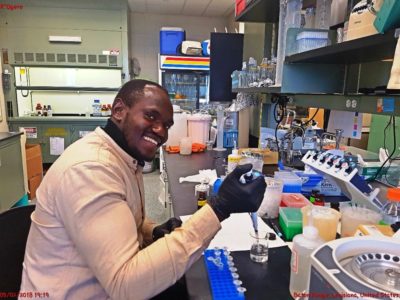Kwame Ogero of the International Potato Center takes an in-depth look at the National Clean Plant Network for Sweetpotato in the United States. He draws lessons on clean seed systems for Tanzania, where he is currently based as well as for Africa.

Early this year, I got a chance to visit and share experiences with stakeholders involved in sweetpotato seed systems in the USA. This was through a nine-week placement at Louisiana State University’s Agricultural Center (LSU AgCenter) made possible through the CGIAR-Norman Borlaug Fellowship supported by the United States Department of Agriculture Foreign Agricultural Service (USDA-FAS). My activities included studying the role of sweetpotato foundation seed programs in maintaining the integrity of commercial seed stocks by providing virus-tested (VT) foundation seed to commercial producers.
Working at LSU AgCenter under the supervision of Dr. Christopher Clark and Dr. Arthur Villordon, I learnt how virus-tested foundation seed is produced and disseminated to farmers through the elaborate and well-coordinated National Clean Plant Network for Sweetpotato (NCPN-SP).
Continue reading this story on the CGIAR Research Program on Roots, Tubers and Bananas website.
